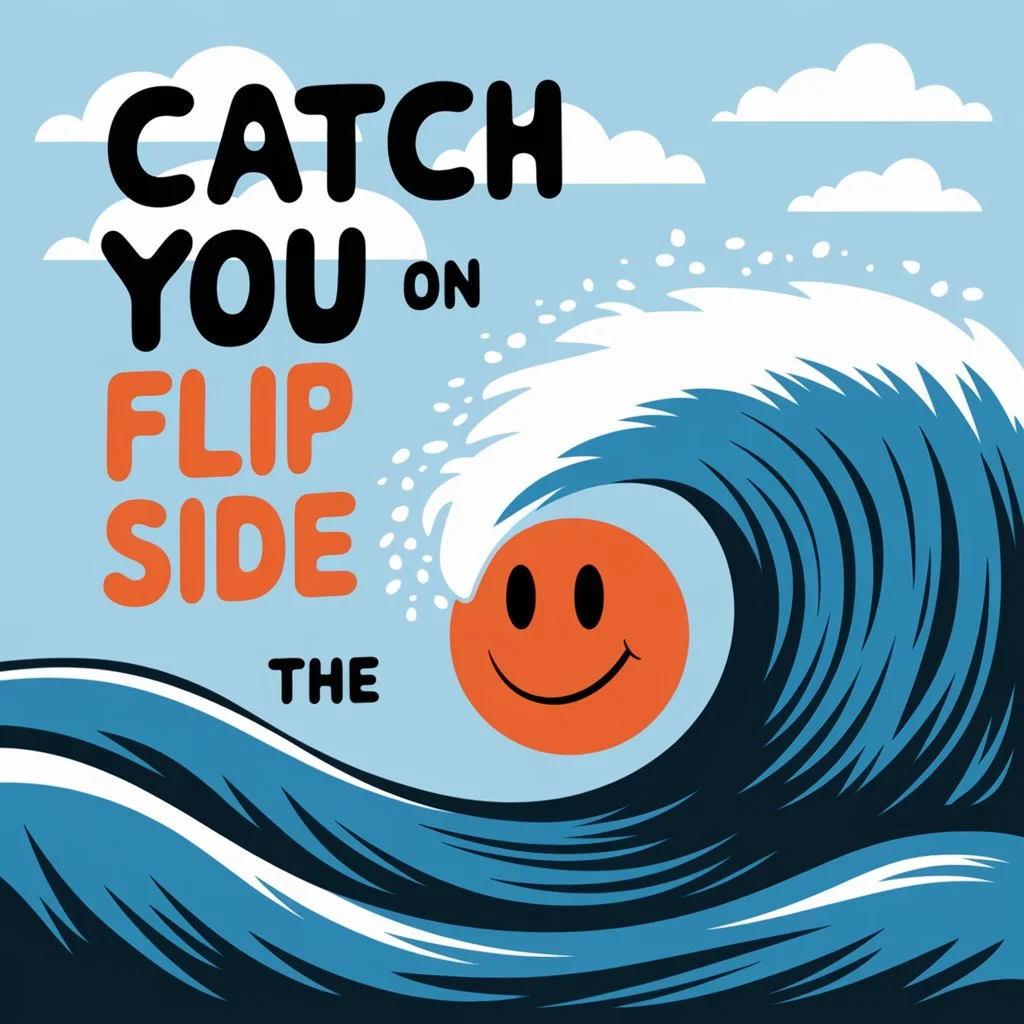Catch you on the flip side” is a colloquial saying that means “see you later” or “talk to you soon.” It’s a way of saying goodbye with the implication that the two people will meet again, though the exact time is uncertain. For instance, someone might say, “Catch you on the other side, when all this blows over!”
In informal English, it’s often used in a laid-back or casual setting. Referring to the Urban Dictionary, the phrase has remained a popular idiom, meaning the same thing—goodbye for now, but with the expectation of crossing paths again.
There are several variations of the phrase that can be used interchangeably:
- See you on the other side
- Catch ya on the other side
- I’ll catch you later
- Catch me later
- Catch you soon
How to Use “Catch You on the Other Side” in a Sentence
Now that we understand the meaning, let’s see how it works in different contexts. Here are some examples of how “catch you on the other side” might be used in everyday conversation:
- If you don’t hear from me after this, I guess I’ll catch you later!
- Hey man! Catch ya on the other side!
- Catch you when this all blows over.
- Good luck with your new job, mate! Catch you soon!
- I told you we’d catch each other on the other side!
- You caught me on the other side. I wasn’t expecting to see you again!
- When you get a minute, catch me on the other side! It’ll be nice to hear from you again.
- Catch us if you think you can handle us.
- Catch you later when I’m through with this!
- See you later, man! Or, as a wise man once said, catch you soon!
This phrase is often used when saying goodbye with the expectation of meeting again, though the timing of the next meeting is often left uncertain. The phrase itself creates a sense of continuity—the current situation might be ending, but the relationship or connection isn’t.
Contextual Meaning of “Other Side”
The “other side” typically refers to a different time or place than the current moment. Depending on the context, it can imply:
- A future meeting after the current situation is resolved.
- An alternate version of the present situation, such as after something difficult or risky is done. For example, if someone is about to undertake a dangerous task, “other side” might even be a metaphor for the afterlife if things go wrong.
For instance, if two friends part ways because one is starting a new job, “other side” might mean when they meet again after a period of separation due to their new jobs.
What Does It Mean When a Guy Says “Catch You on the Other Side” to a Girl?
When a guy says “catch you on the other side” to a girl, the context becomes essential to understanding the meaning. Generally, it’s a positive expression, suggesting that the guy is looking forward to seeing the girl again. It’s a friendly and casual way of saying they intend to meet in the future.
However, if the conversation had a more negative tone (e.g., after an argument), the phrase could be used sarcastically, implying that the “other side” refers to a time when things have calmed down or when feelings are no longer hurt.
Overall, it’s usually meant in a lighthearted way, especially in casual conversation.
Origin of “Catch You on the Other Side”
The phrase originates from the music industry, specifically among disc jockeys (DJs). In the era of vinyl records, every record had two sides—Side A and Side B. Side A generally had the more popular songs, while Side B featured lesser-known tracks.
When a DJ finished playing a song from Side A, they would often say something like, “Catch you later,” referring to the transition to Side B. The “other side” in this context literally meant flipping the record to the other side.
Over time, this evolved into a colloquial expression used to indicate moving on to the next phase of a situation or saying goodbye until a later time.
Is “Catch You on the Other Side” an Idiom?
Yes, “catch you on the other side” is considered an idiom. An idiom is a phrase where the meaning isn’t directly related to the individual words used. In this case, “catch” normally means to grab or seize something, and “other” implies a different version. However, when combined in this phrase, it doesn’t mean a literal “other” or “catch” but instead conveys the idea of meeting again later.
Is It “Flipside” or “Other Side”?
Both “flipside” and “other side” are correct and can be used interchangeably. However, most people prefer to write it as two words—“other side.” The meaning remains the same regardless of how it’s written.
Synonyms for “Catch You on the Other Side”
Here are some synonyms or alternative expressions you can use instead of “catch you on the other side”:
- Catch you later: A direct, casual way of saying “see you later.”
- See you on the other side: Similar meaning, though using “other” instead of “flip.”
- In a while, crocodile: A playful expression meaning you’ll see someone soon.
In essence, “catch you on the other side” is a laid-back, nostalgic way of saying goodbye with the promise or hope of reconnection. It retains its roots in music culture but has evolved into a timeless phrase in everyday conversation.
FAQs:
What does “catch you on the flip side” mean?
Catch you on the flip side” is a slang phrase that means “see you later” or “talk to you soon.” The phrase implies that the speaker expects to meet or communicate again at some point in the future, though the exact time is uncertain. It’s a casual way to say goodbye with a positive tone, often used among friends or acquaintances.
Where does the phrase originate from?
The phrase originated in the music industry, specifically from the era of vinyl records. DJs would often say “catch you on the flip side” when switching from side A to side B of a record. Side B usually had lesser-known tracks, symbolizing a transition to something different but still connected to the previous experience, which is reflected in how the phrase is used today.
When can I use “catch you on the flip side”?
You can use “catch you on the flip side” when saying goodbye in a casual setting, especially when you expect to see the person again later. It is often used in contexts where the future meeting is uncertain but implied, such as after completing a task, ending a conversation, or parting after a social event.
What’s the difference between “flip side” and “flipside”?
Both “flip side” and “flipside” are acceptable, and the meaning remains the same regardless of the spelling. “Flip side” is the more common way to write it, with a space between the words. “Flipside” as one word is less formal but still widely understood. Neither version changes the idiomatic meaning of the phrase.
Can “catch you on the flip side” have negative connotations?
While the phrase is mostly used in a positive, casual manner, context is important. If someone says it in a sarcastic tone, especially after a disagreement or confrontation, it might imply that they are reluctant to meet again or that they’ll connect when the situation has “blown over.” However, such usage is rare, and the phrase is typically seen as friendly.
What are some alternatives to “catch you on the flip side”?
Some common alternatives include “catch you later,” “see you on the other side,” and “in a while, crocodile.” All of these expressions have a similar meaning, focusing on the idea of meeting again at a future time. These phrases are equally casual and are often used in informal settings.
Conclusion:
“Catch you on the flip side” is a unique phrase that captures the essence of a casual, friendly farewell with the expectation of reconnecting in the future. Its origins in the world of vinyl records remind us of the charm of simpler times, while its continued use today reflects how language evolves with culture. Whether used in conversations between friends or in popular media, the phrase carries a sense of optimism and anticipation for the next encounter. As the saying goes, “words are the voice of the heart,” and phrases like this show how language can bridge time and space between people. So, the next time you say goodbye, consider using this nostalgic expression — “catch you on the flip side!“

I’m Clara Whitmore, the girl running the show at “Grammer Grove.” I’ve been playing with expressions and formats to make grammer a whole lot of fun. Over at Grammer grove, we’re here to make your English grammer incredible. Let’s add some professionalism and gratitude to yourwritting together!












